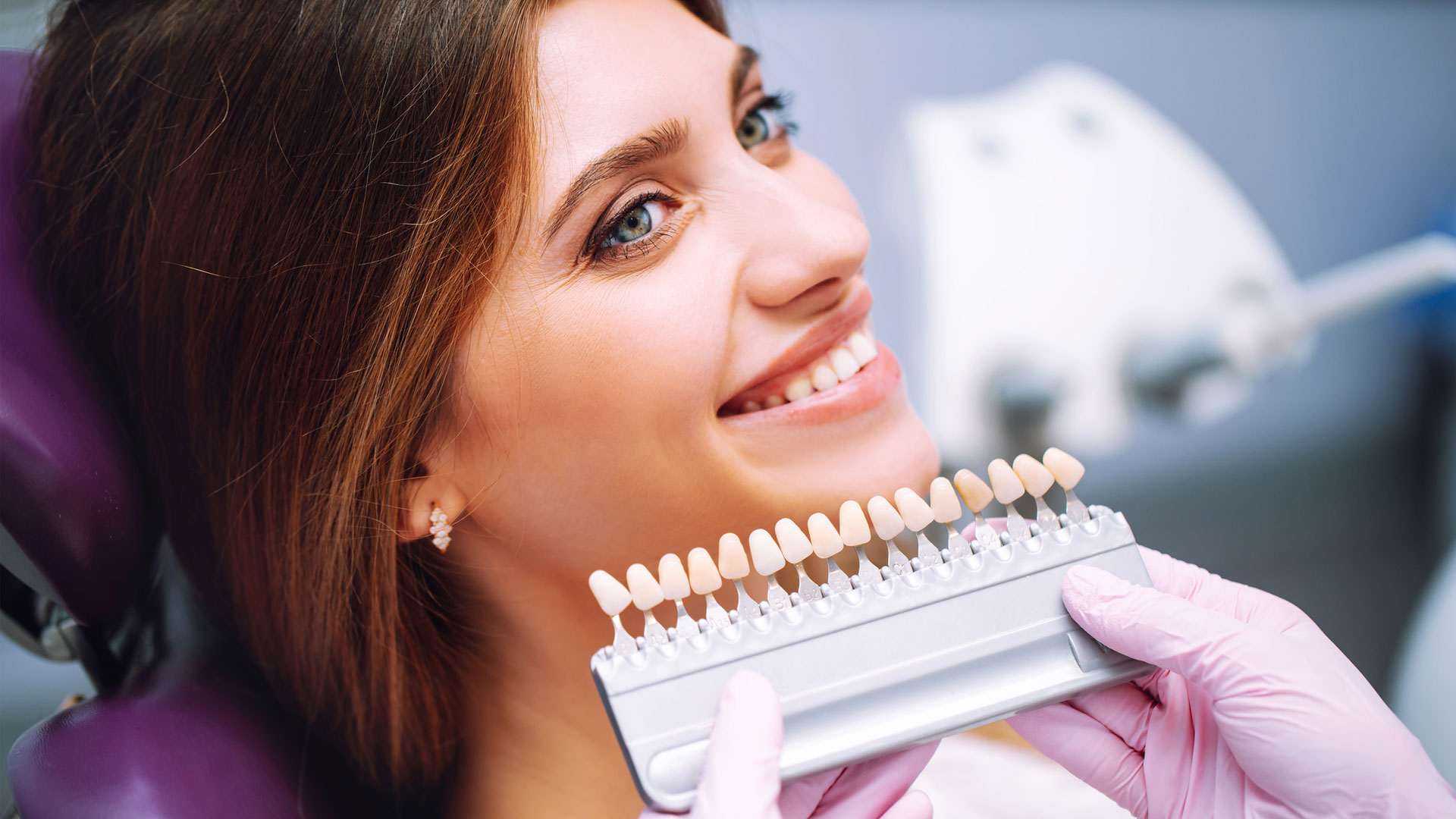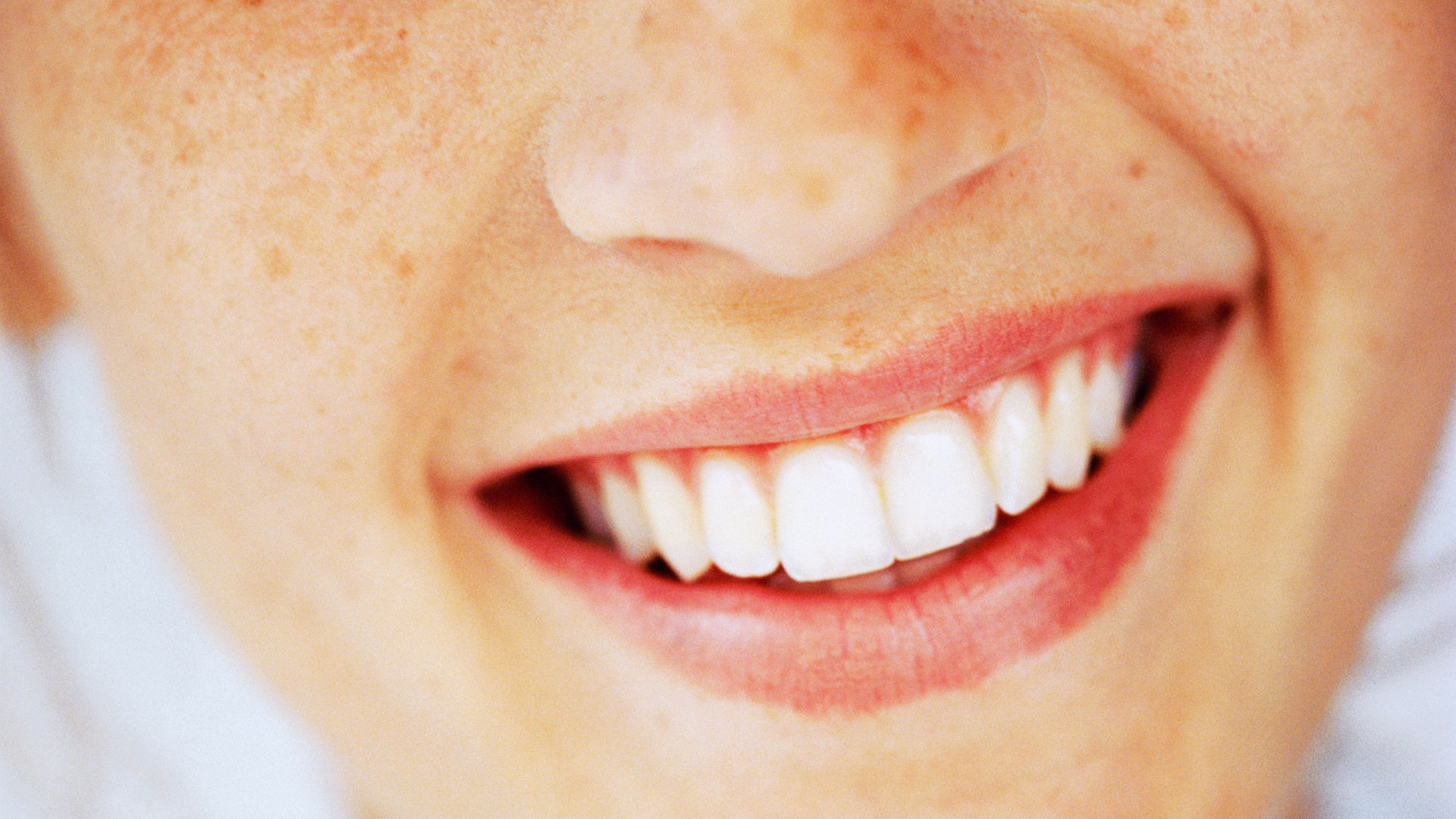Is teeth whitening safe?
Is teeth whitening safe? We’ve asked a group of industry-leading dentists to tell us what they think

No matter how often you brush your teeth, some pesky yellow tones just won't go away. If your teeth are looking stained, you may have wondered: "Is teeth whitening safe?"
Pearly white, straight teeth have long been a desirable physical asset. A paper published in Sociology of Health & Illness even found that having a bright smile can affect our social status, how much we earn, and how successful we are in love! All in all, there are lots of good reasons to consider having your teeth whitened.
But what about risks? There are lots of options when it comes to treating yellowing teeth. At-home kits, in-office treatments and dentist-prescribed options all seem tempting for different reasons. Figuring out which ones are safe can be confusing, so we’ve asked leading cosmetic dentists for their advice about safely whitening your teeth.
There's lots you can do to improve the condition of your teeth before considering teeth whitening, however. You can read our guides on how to use an electric toothbrush and how to floss your teeth, as well as reviews on some of the best electric toothbrushes available.
- Related: Are teeth naturally yellow?
Is teeth whitening safe and how does it work?
"Teeth-whitening products are generally pretty safe to use," says dentist Alina Lee Lane, DDS. Although, she adds that whitening products need to be used carefully. "Don’t use [whitening products] excessively or leave them on your teeth for longer than the recommended times."
Peroxides are the most common bleaching agents used in teeth-whitening products. Hydrogen peroxide or carbamide peroxide will likely be included in the list of ingredients for your whitening kit, whether it be an at-home or in-office treatment. The way they work is a little complicated. In short, they break down and lift stains from the enamel on your teeth: carbamide peroxide breaks down into hydrogen peroxide and urea to penetrate the surface of your enamel. According to research published in the Journal of Dentistry, because of its acidic properties, hydrogen peroxide can remove electrons, thus breaking down the atoms within staining molecules. In turn, this action lifts stains from your teeth, and as these stains are removed, your teeth will look brighter.
What are the risks of teeth whitening?
A study published in the Journal of Evidence-Based Dental Practice found several risks associated with at-home teeth whitening products, including tooth surface roughening and softening, increased potential for demineralization, and degradation of dental restorations. Dr Lane tells LiveScience: "The most common risk when whitening your teeth is developing temporary sensitivity or 'zingers.'"
You can read more about how to whiten your teeth naturally at home for a more in depth look at the methods you should be avoiding.

Overusing peroxides comes with its own set of risks too. "Using a high concentration of whitening products excessively will dehydrate your teeth, which can make them become darker over time," says Dr Lane. Dr Amo Sohal, MDDr. BSc. Pg (dip) echoes these warnings, explaining: "Products provided through dentists are safe. However, some products available online or in shops can contain abrasives or acids which can have some damaging effects on teeth."
Peroxides bleach the surfaces they come into contact with, which may cause long-term complications. A 2006 paper in the British Dental Journal also raised concerns over the safety of bleaching teeth and gums. Dr Lane highlights these risks, warning that "when too much product is used, or it is left on the teeth and gums for too long, it can result in irritated 'burned' gums or sensitive teeth". The advice remains consistent on the whole, though: if you stick to the instructions you are given, teeth whitening products should be safe to use.
Are home teeth-whitening kits safe?
The safety of home teeth-whitening kits mostly comes down to two factors: the quality of the product itself and how well you stick to the instructions they provide you with. But as long as you don't use them excessively or leave them on your teeth for longer than the recommended times, they are generally safe to use.
In some countries, such as the UK, at-home whitening kits are tightly regulated. This means you would have to go to your dentist for a prescription-strength at-home whitening treatment, or have the treatment in-office. Dr Sohal explains: "Only dental professionals can legally prescribe proper whitening systems in the UK. At-home whitening is fine as long as your dentist prescribes it." He adds that he doesn't recommended whitening toothpaste as this can be abrasive to teeth and can lead to enamel abrasion."
Can anyone have their teeth whitened?
As you’ve seen, there are some risks associated with teeth whitening. As such, some groups of people should avoid having their teeth whitened altogether. Dr David Rice, Founder of IgniteDDS and the Chief Editor of DentistryIQ, says: "I would highly recommend you check with your dentist and hygienist to make sure you have a healthy mouth to start with."

Conditions that may make you unsuitable for teeth whitening include receding gums, existing cosmetic treatment (e.g. braces), decaying or unrestored teeth, a dry mouth or poor oral hygiene. However, most of these conditions would be diagnosed during a visit to a dentist, so having a routine check-up before whitening would be sensible.
A 2017 review in the journal Dental Clinics of North America also suggested that teeth whitening should be avoided during pregnancy. The research recommends that elective dental treatment, including teeth whitening, be postponed until after the birth.
Sign up for the Live Science daily newsletter now
Get the world’s most fascinating discoveries delivered straight to your inbox.
India Bottomley is a health and beauty writer whose work has been published in the likes of Cosmopolitan, Forbes, and Dazed Magazine. A lifelong skincare aficionado, India has been writing research-led pieces on trending skincare, makeup, and cosmetic procedures since 2016. She takes particular interest in the growing connection between tech and beauty, and has had pieces on the topic published in American Healthcare Journal. When not writing she can be found exploring national parks or at the beach chasing sunsets.











